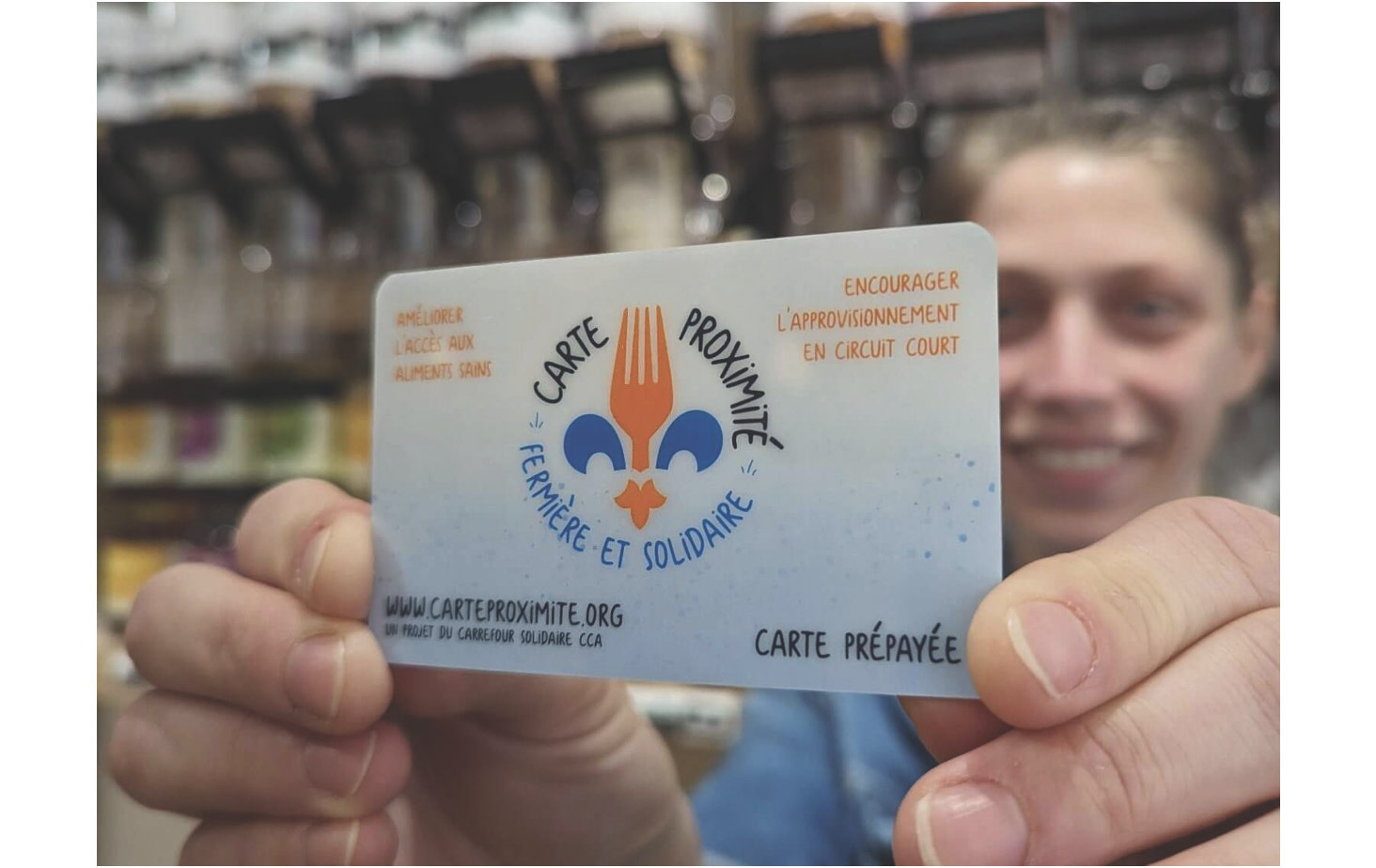Food coupons pilot puts choice and dignity on the table in Outaouais
Tashi Farmilo
A pilot project in the Outaouais is offering compelling evidence that targeted food assistance can ease the strain of inflation, improve diets and strengthen ties between households in need and local producers. The initiative, Vers des coupons nourriciers en Outaouais (Toward Food Coupons in Outaouais), was first carried out from October 2024 to January 2025 by the Table de concertation sur la faim et le développement social de l’Outaouais (TCFDSO). Its provisional report, released earlier this year, points to strong results and sets the stage for a second edition scheduled to begin in September 2025.
Forty-seven households participated in the pilot, receiving monthly credits ranging from $50 to $125, depending on family size. Over four months, each household received an average of $370 in support, with additional gift cards donated to increase the overall assistance. The credits were distributed through the Carte proximité fermière et solidaire, a prepaid card accepted at nine points of sale across Gatineau and the Vallée-de-la-Gatineau.
The network of merchants included markets, farms and bulk grocers such as Marché de l’Outaouais, La Mesure – Marché en vrac, Saveurs de la Vallée and Espace DEP Sylvestre. Local producers also joined the effort, among them Ferme Réservoir, Jardins Céleste, Les Récoltes de Samhain, Caya Ranch and the Centre de valorisation des aliments de la Vallée-de-la-Gatineau. On the community side, food banks and emergency centres played a key role: Aux Goûts du jour in Gracefield referred households from the rural MRC Vallée-de-la-Gatineau, while the Centre en sécurité alimentaire de Gatineau (CSAG) and BASE, a food bank serving Hull and the Plateau, helped connect participants in urban areas and oversaw distribution.
“The objective is to give people a chance to choose which products they want to buy for themselves,” said François Pays, general manager of the TCFDSO. “When you receive a food basket at a food bank, you don’t usually choose the contents. With the card, people can decide if they want chicken, honey or fresh vegetables, things they might not otherwise find.”
The results highlight significant improvements in both diet and household budgets. Eighty-seven per cent of participants reported eating more fruits and vegetables, and 97 per cent judged the food they purchased to be of good quality. For many, being able to buy fresh produce and meat represented a first, as these items were often considered too costly.
The financial impact was equally clear. Ninety-four per cent of respondents said the card helped blunt the effect of rising grocery prices, and 97 per cent said it allowed them to buy food they otherwise could not afford. For many families, the credits covered between a quarter and three-quarters of their monthly food budget. Two-thirds of participants reported improvements in both physical and mental health, while those managing chronic conditions such as diabetes or heart disease said better access to nutritious food had made a tangible difference. Nearly all emphasized the dignity of the experience, noting that the card gave them choice and autonomy rather than leaving them dependent on what came in a pre-packed basket.
For Pays, the cards also serve a broader purpose: strengthening the regional food system. “It’s a way for us to incentivize more local consumption,” he explained. “Beneficiaries from a food bank usually don’t go to a farmers’ market. This program sends their way customers who might never have discovered those places otherwise, helping local farmers and businesses in return.” Farmers and merchants echoed this view, describing how the direct contact with participants created opportunities to answer questions, suggest affordable meal options and introduce new products.
“This project doesn’t replace food baskets,” Pays added. “It’s a plus. It gives food banks more tools in their toolkit and gives people a little more control over their food needs.”
The TCFDSO, a registered charity, is always accepting donations and provides tax receipts for contributions that help sustain programs like Vers des coupons nourriciers en Outaouais. For more information about the program, visit tcfdso.org.

